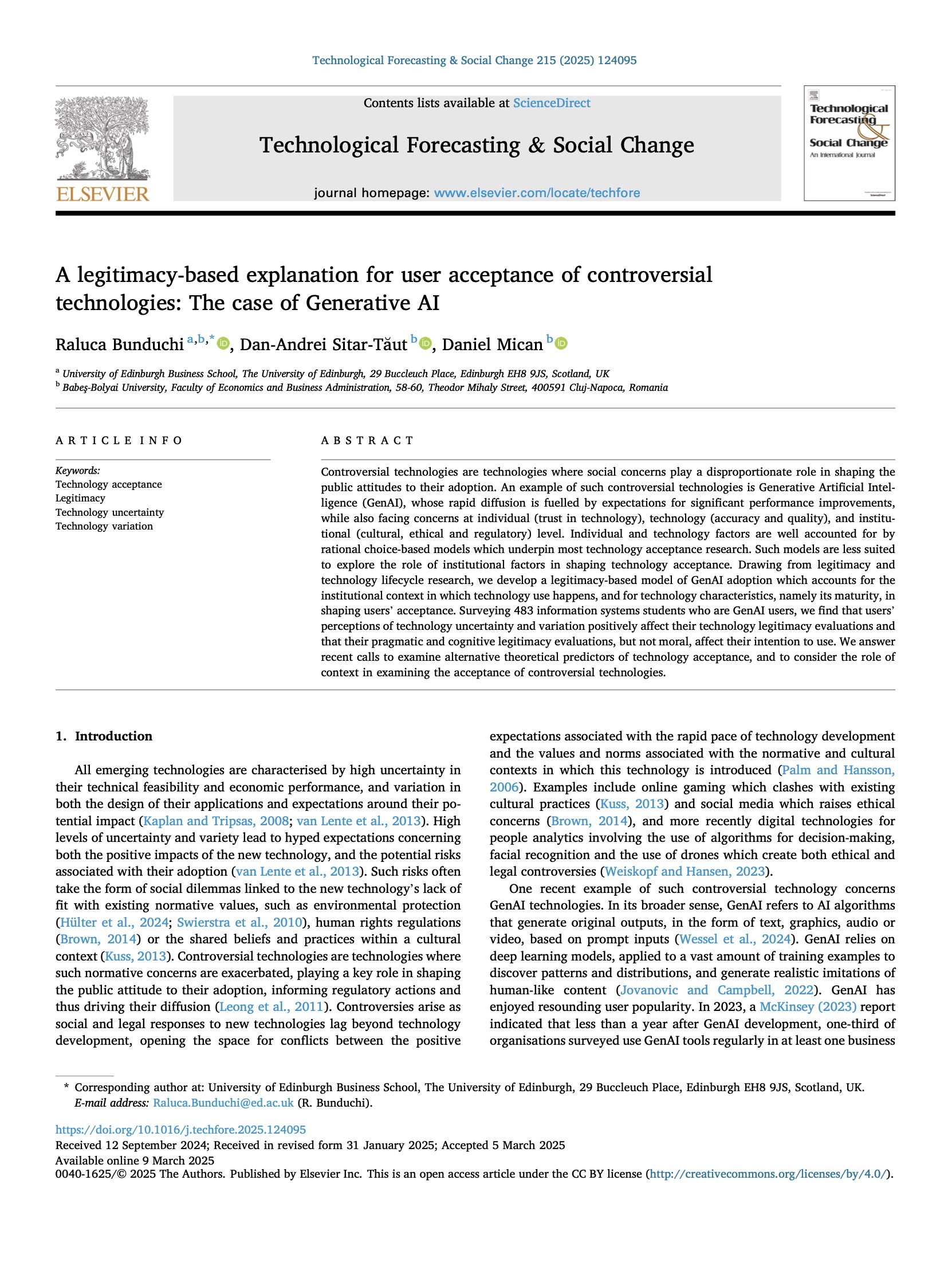|
|
|
Bunduchi, R.; Sitar-Tăut, D.A. & Mican, D. (2025) Technological Forecasting and Social Change [Core Economics, Q1]
Autor:
Cristina Alexandrina Stefanescu
Publicat:
11 Martie 2025
Bunduchi, R.; Sitar-Tăut, D.A. & Mican, D. (2025), A legitimacy-based explanation for user acceptance of controversial technologies: The case of Generative AI. Technological Forecasting and Social Change, 215, 124095.
DOI: https://doi.org/10.1016/j.techfore.2025.124095
✓ Publisher: Elsevier
✓ Categories: Business; Regional & Urban Planning
✓ Article Influence Score (AIS): 2.149 (2023) / Q1 in all categiries
Abstract: Controversial technologies are technologies where social concerns play a disproportionate role in shaping the public attitudes to their adoption. An example of such controversial technologies is Generative Artificial Intelligence (GenAI), whose rapid diffusion is fuelled by expectations for significant performance improvements, while also facing concerns at individual (trust in technology), technology (accuracy and quality), and institutional (cultural, ethical and regulatory) level. Individual and technology factors are well accounted for by rational choice-based models which underpin most technology acceptance research. Such models are less suited to explore the role of institutional factors in shaping technology acceptance. Drawing from legitimacy and technology lifecycle research, we develop a legitimacy-based model of GenAI adoption which accounts for the institutional context in which technology use happens, and for technology characteristics, namely its maturity, in shaping users' acceptance. Surveying 483 information systems students who are GenAI users, we find that users' perceptions of technology uncertainty and variation positively affect their technology legitimacy evaluations and that their pragmatic and cognitive legitimacy evaluations, but not moral, affect their intention to use. We answer recent calls to examine alternative theoretical predictors of technology acceptance, and to consider the role of context in examining the acceptance of controversial technologies.

inapoi la stiri  vezi evenimentele
vezi evenimentele  home
home 
|